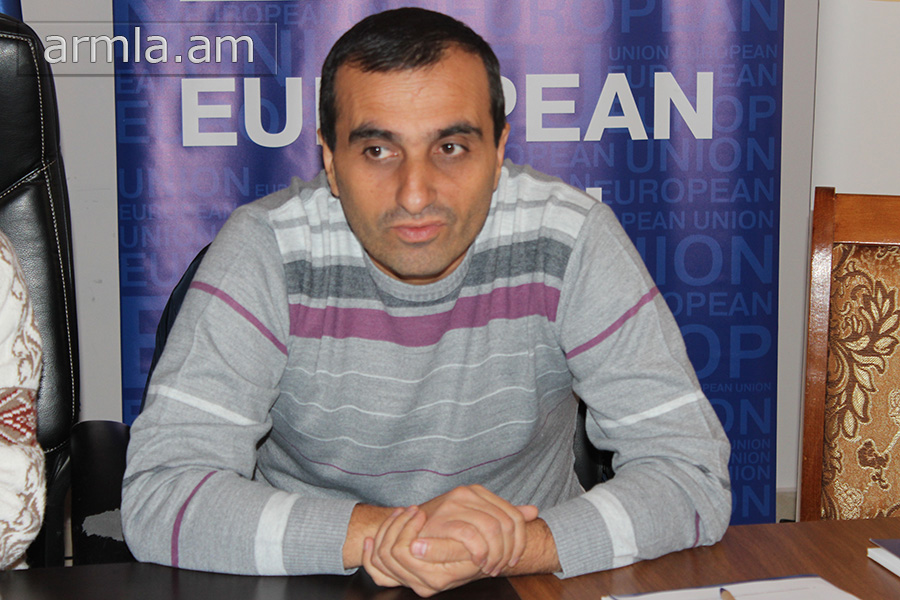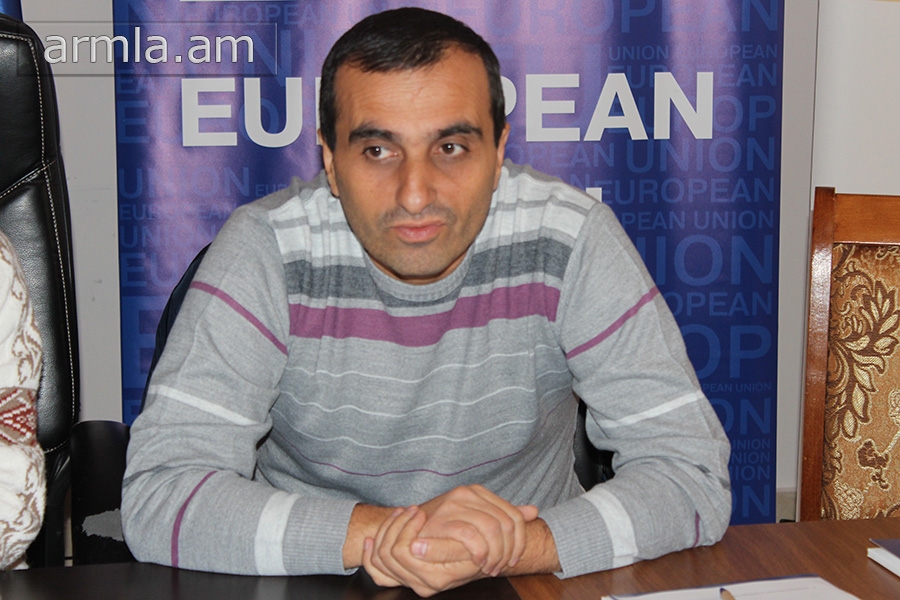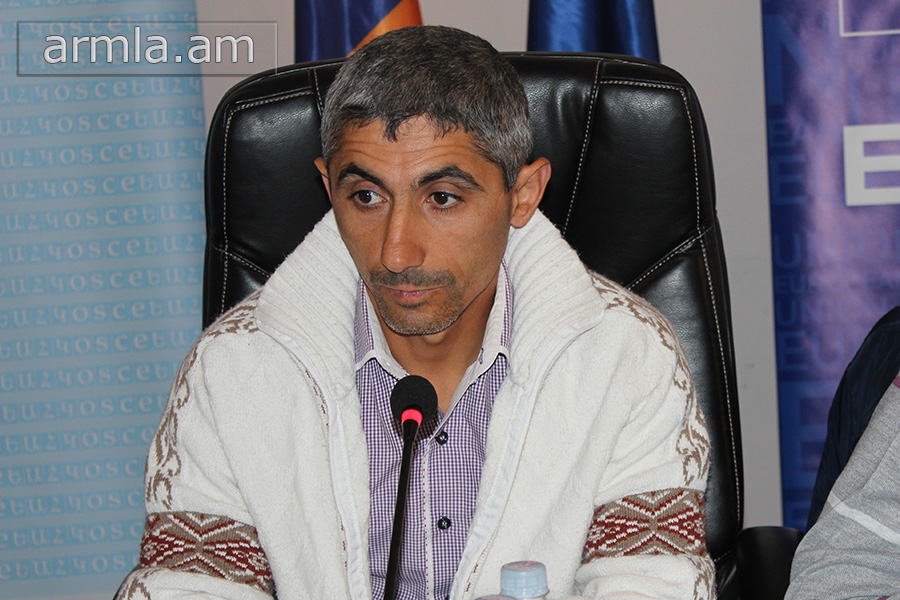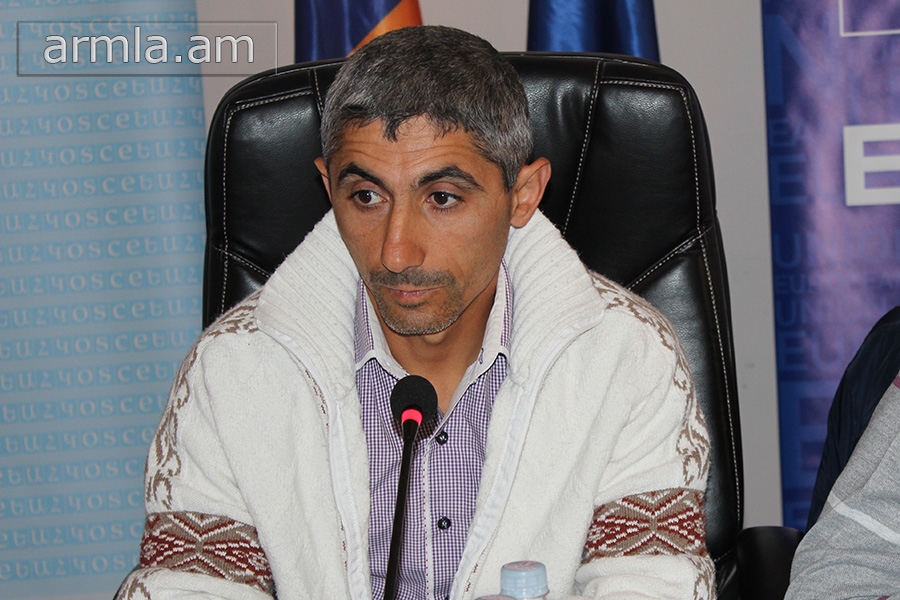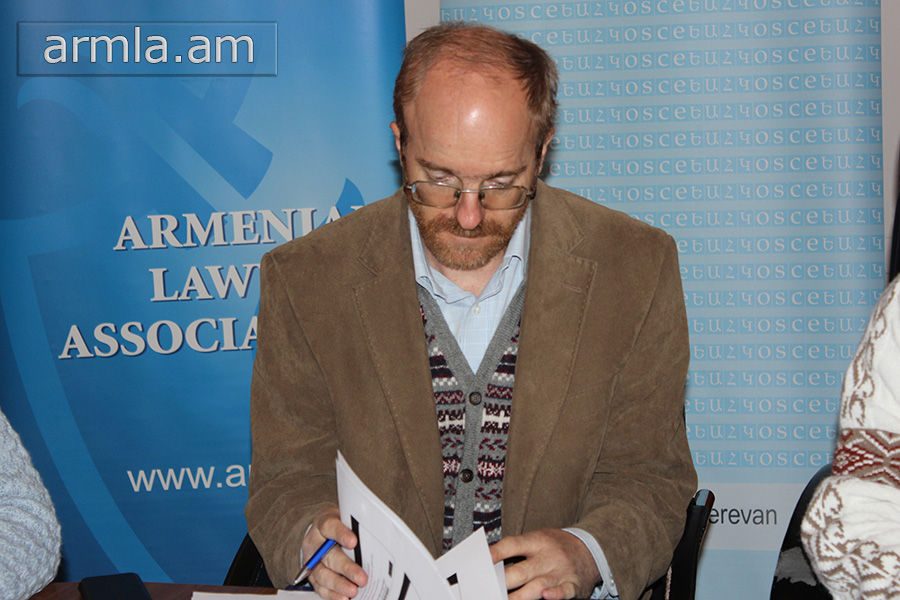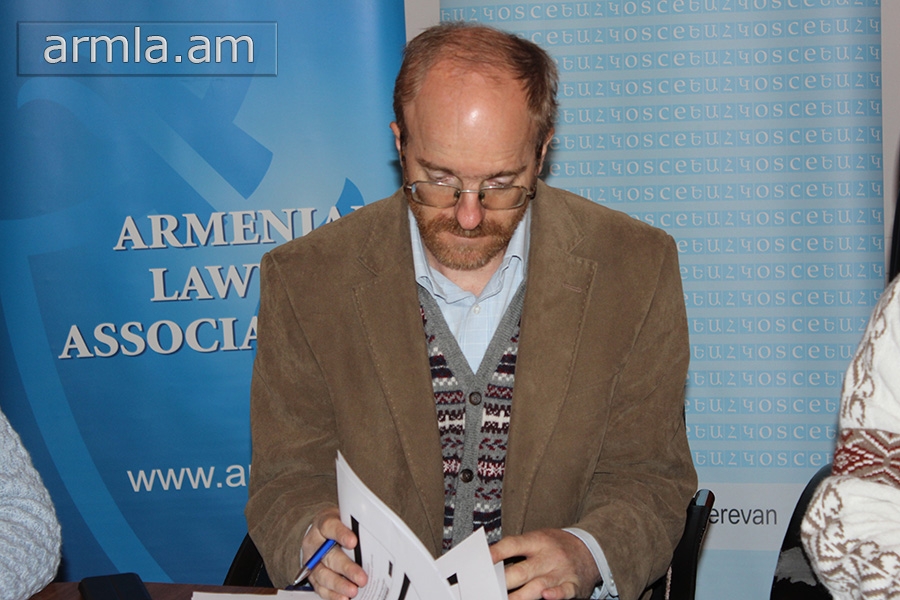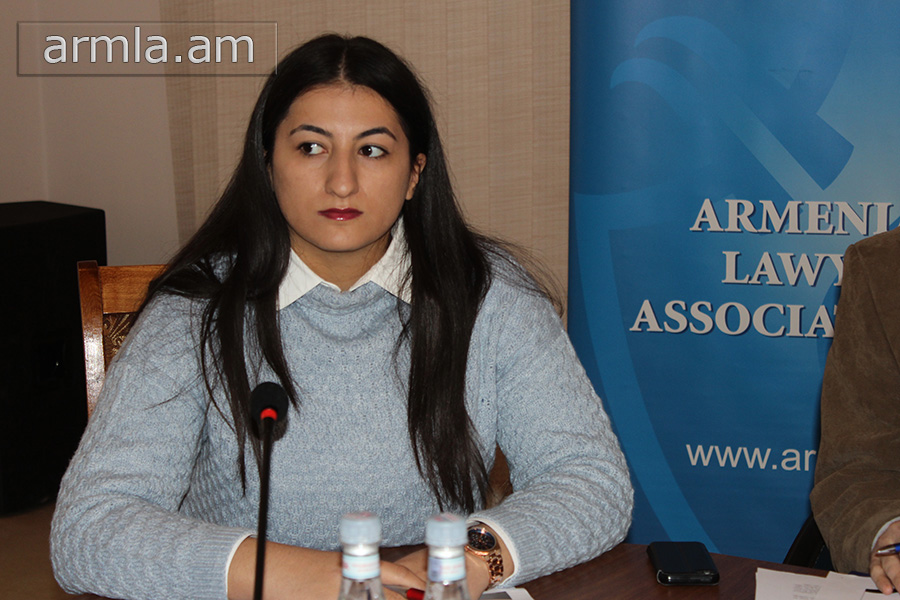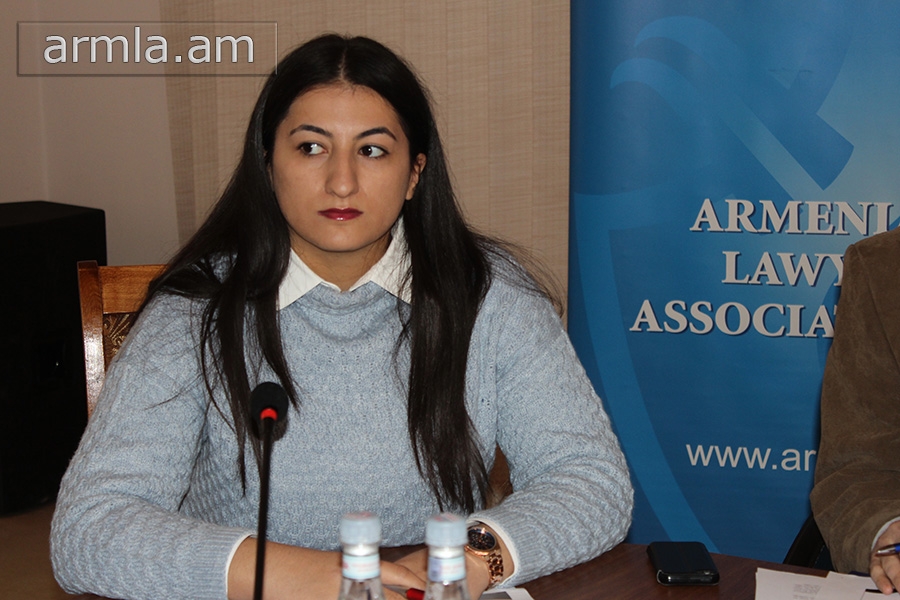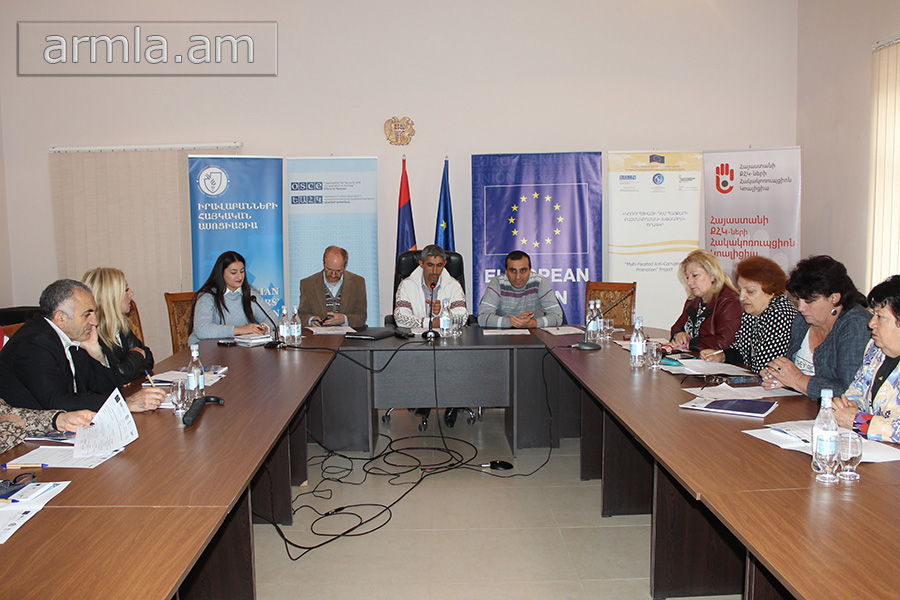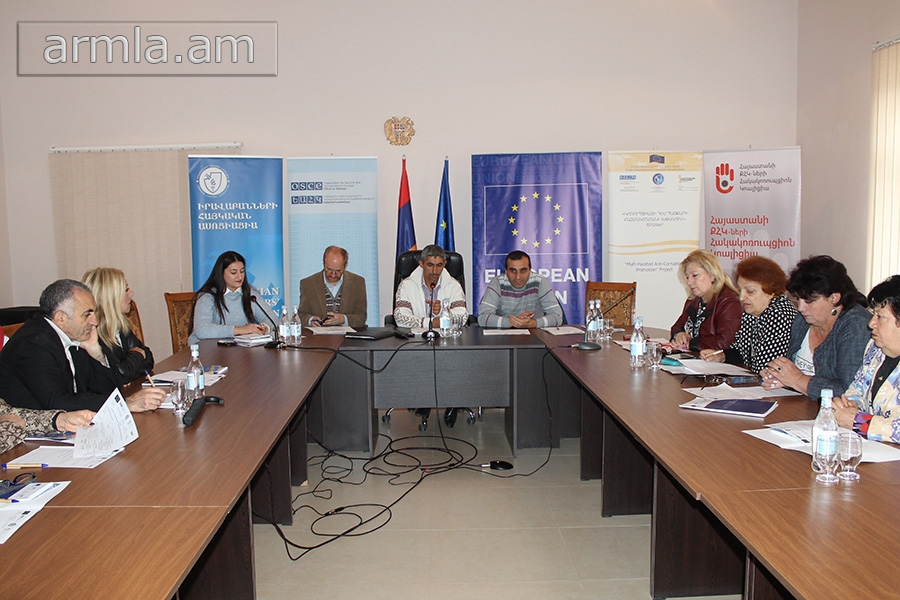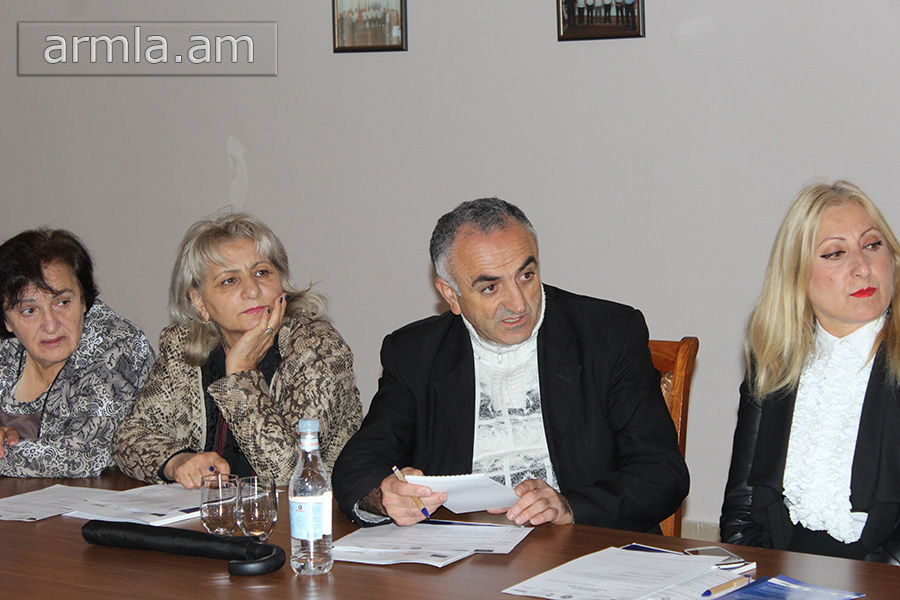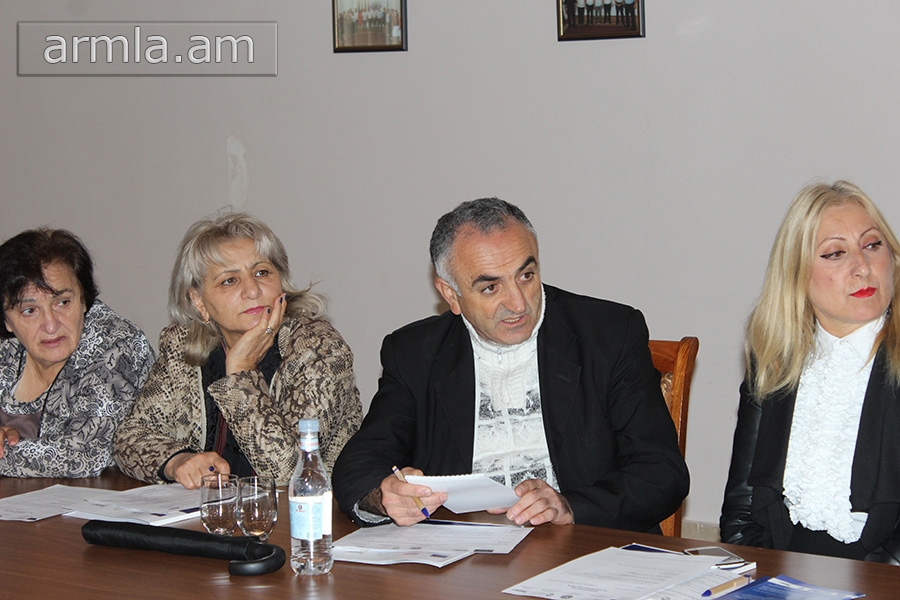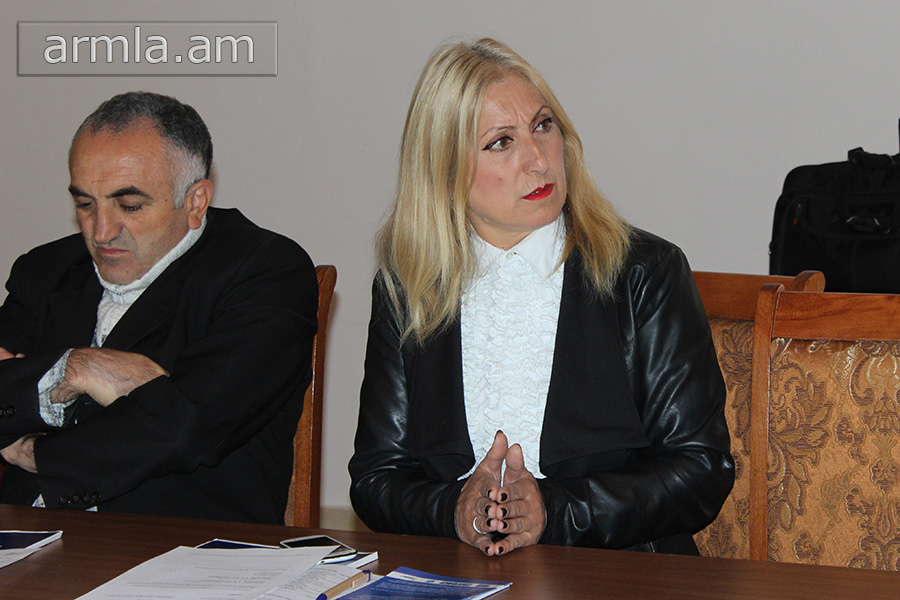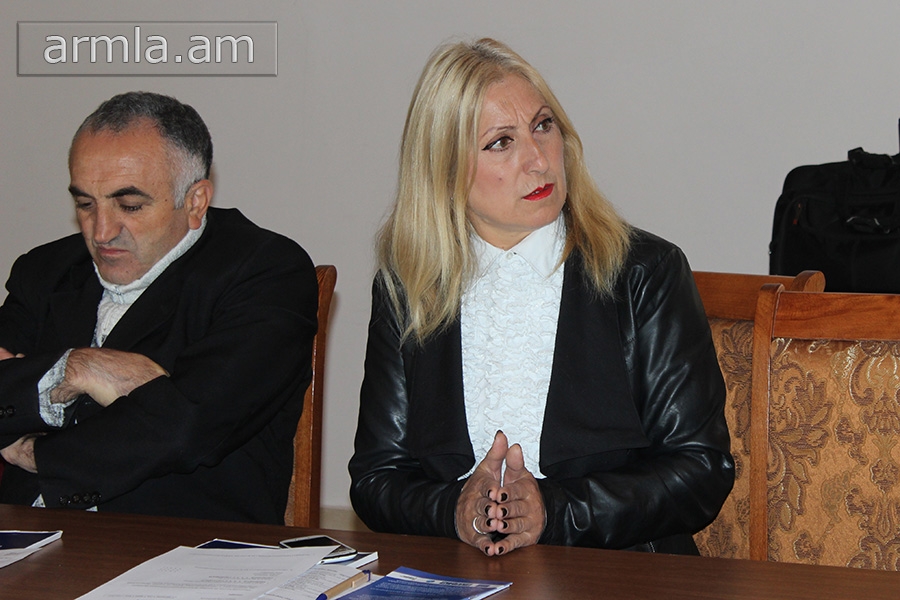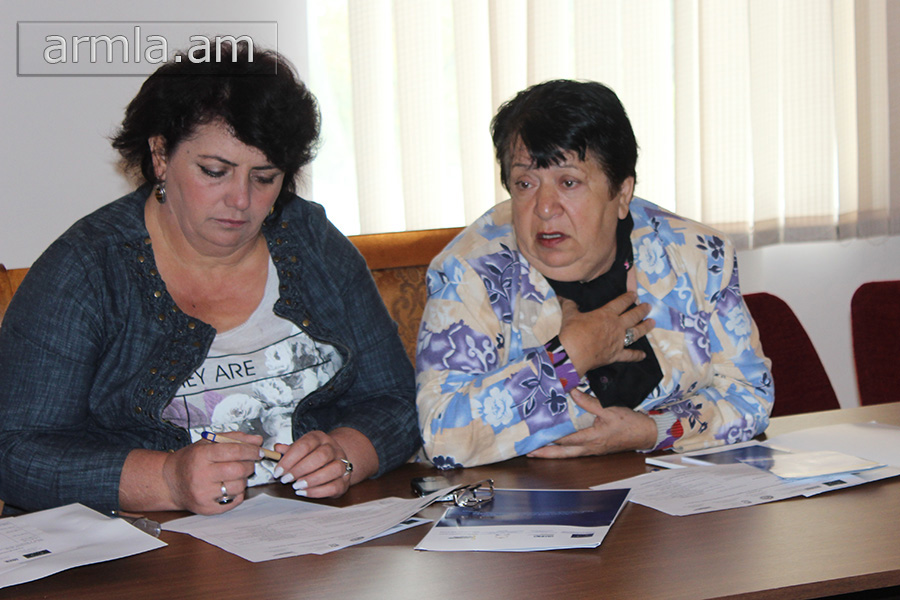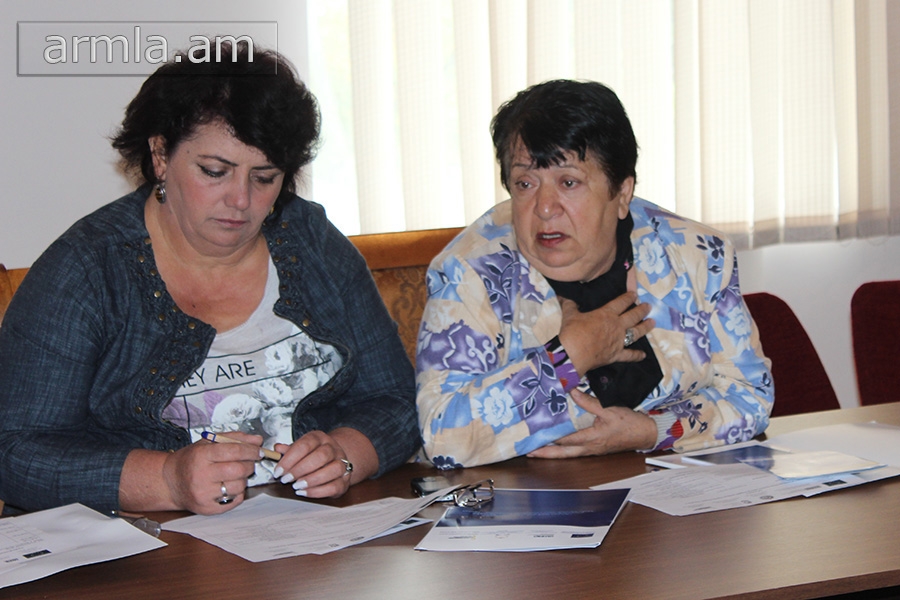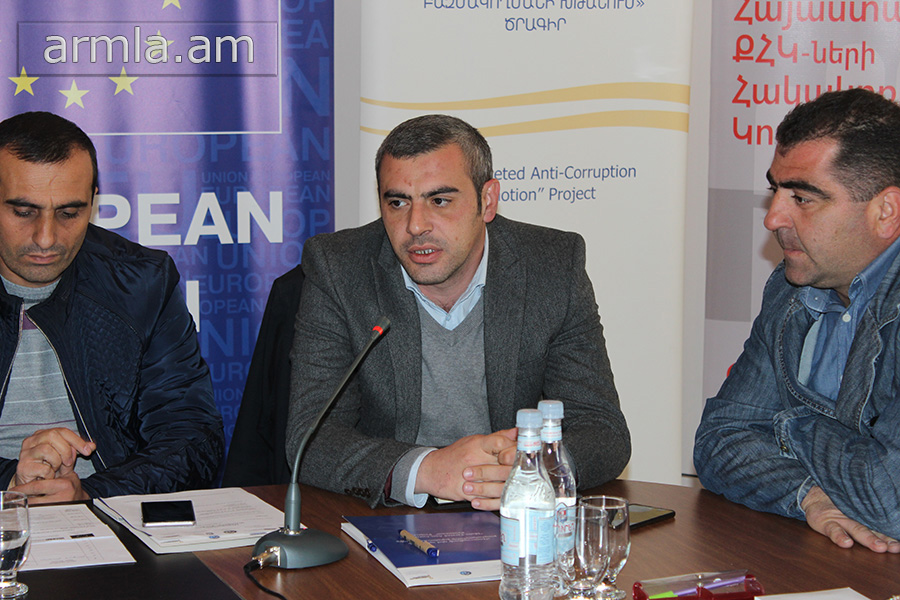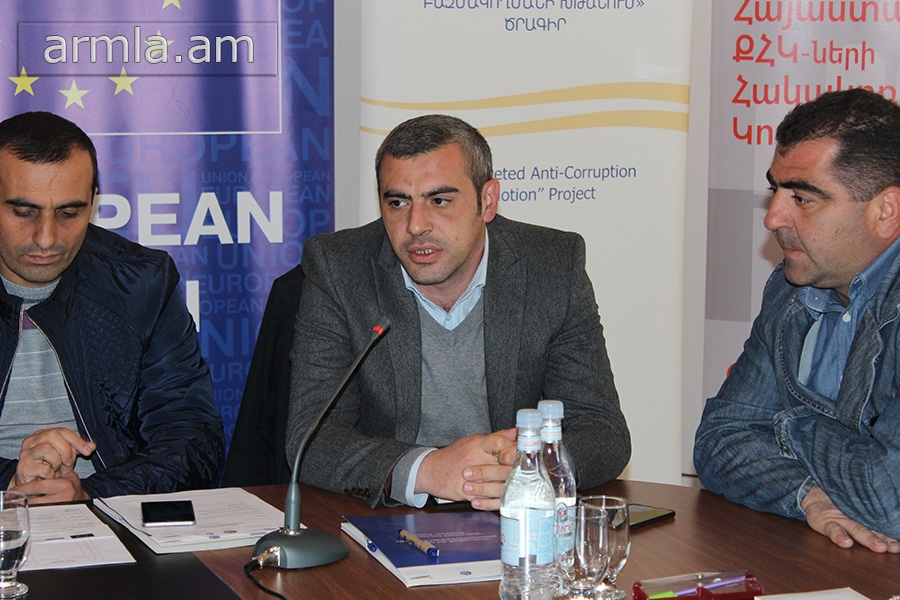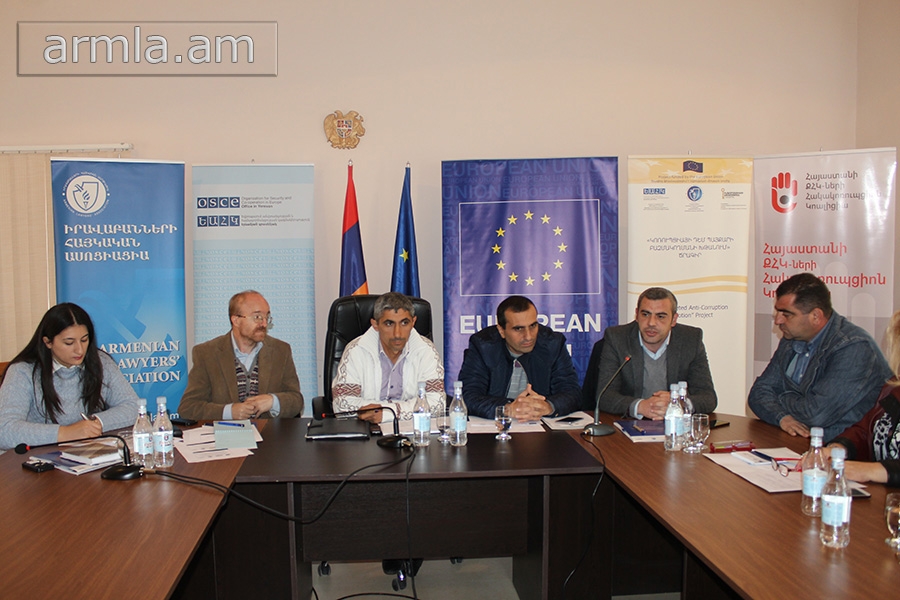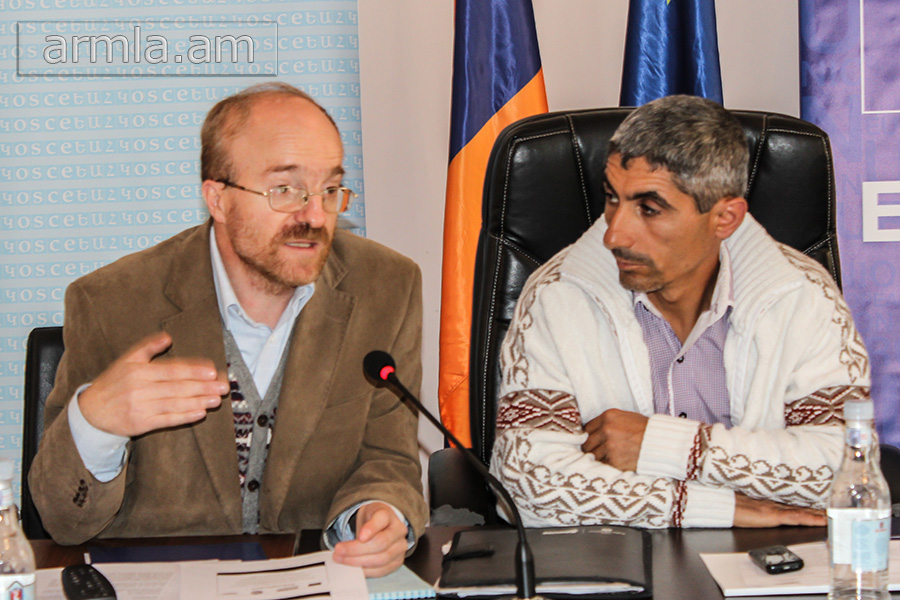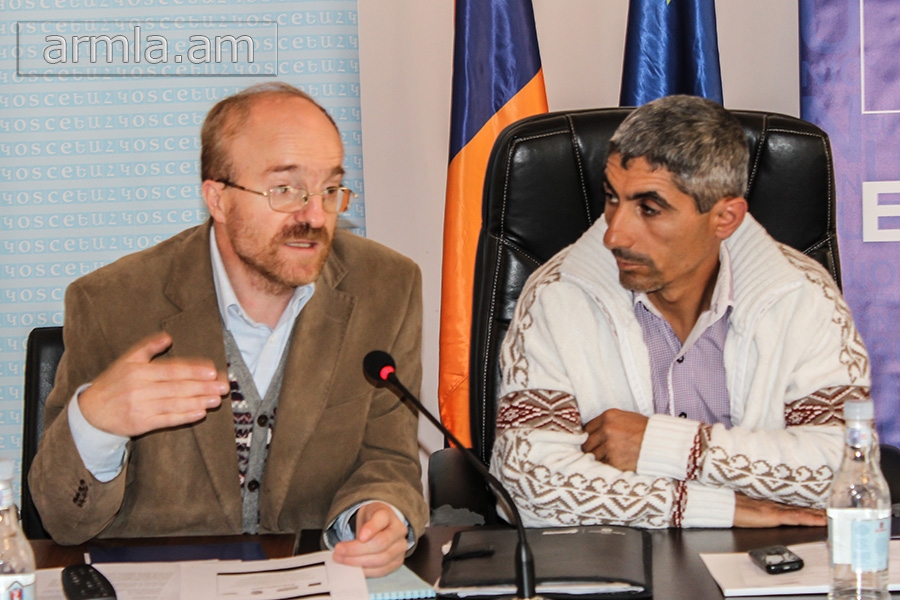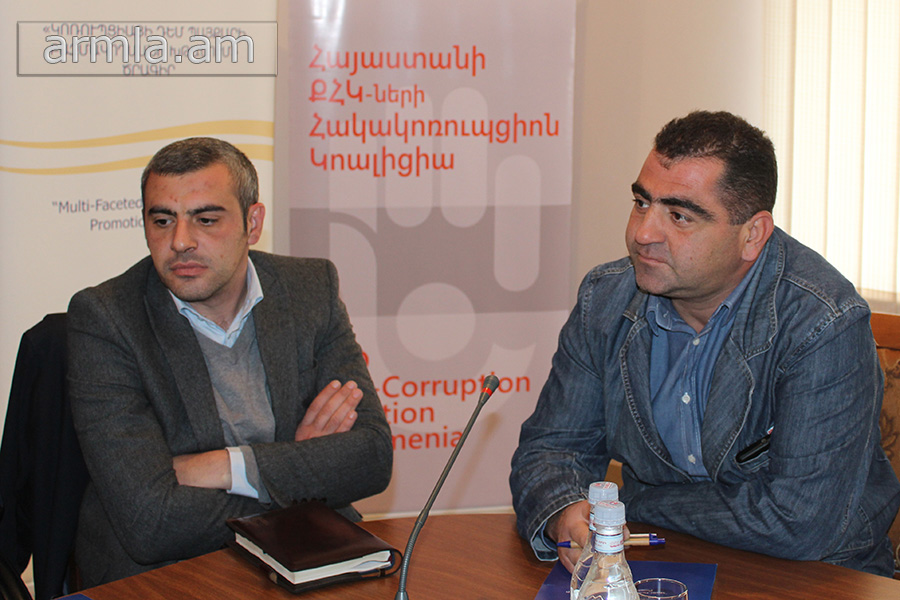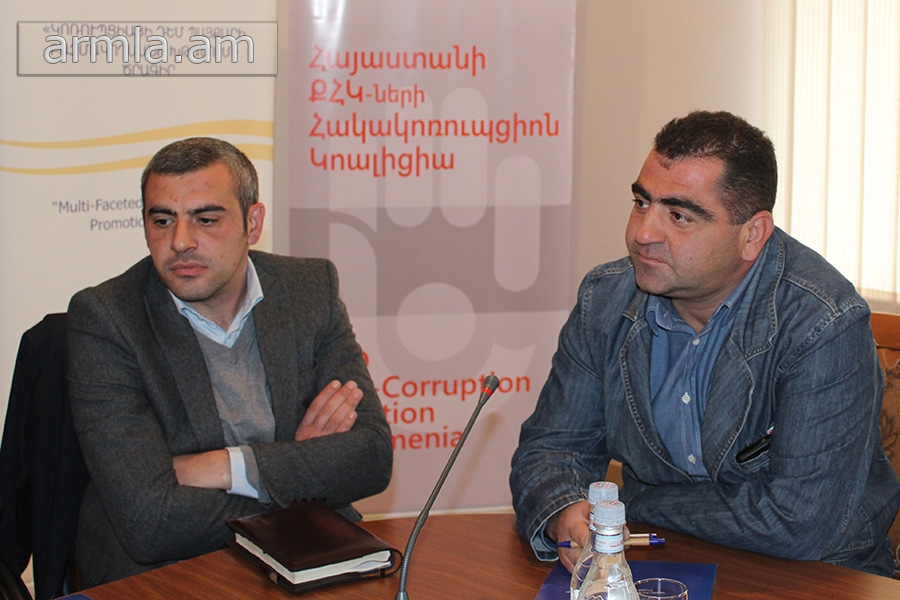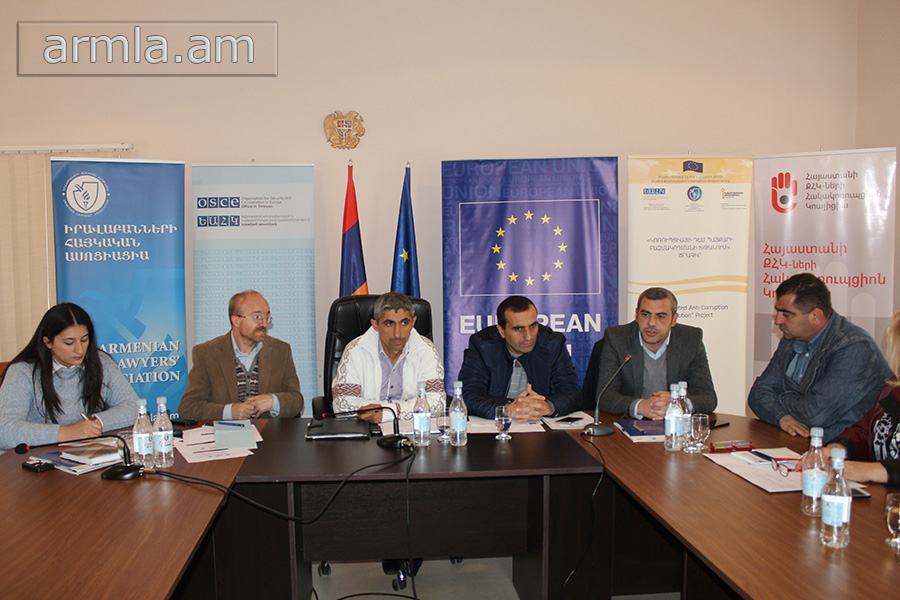
One can face corruption risks when requesting licenses or permissions to carry out certain activities in different fields. Revealing those corruption risks and giving solutions to them is a task of primary importance. These are the key ideas voiced by Artak Saribekyan, the Executive Director of the Armenian Lawyers’ Association, at the recent anti-corruption event organized in Ararat.
This time, too, the anti-corruption event was organized in the scope of the “Multi-Faceted Anti-Corruption Promotion” project implemented by the Armenian Lawyers’ Association. It is funded by the European Union and co-funded by the OSCE Office in Yerevan.
Artak Saribekyan presented the project activities to the participants, highlighting that important anti-corruption legislative bills have already been elaborated as a result of cooperation with the Government. These are serious guarantees for substantially reducing corruption risks in the country. To be more specific, these legislative guarantees can ensure criminalization of illicit enrichment, formation of an independent anti-corruption body, and transparency of public procurement.
Hakob Avagyan, the President of the SME Cooperation Association, which is a member of the CSO Anti-Corruption Coalition of Armenia, noted that there are corruption risks in the provision of licences for construction works. A company could receive only one type of license before. Now, different types of licenses are required for different fields of construction. The state due for each of them is AMD 80,000.
Mr. Avagyan said, “A list of documents is required in order to receive this license. However, this list is not clearly defined by law. Who is supposed to prepare this package, where can these documents be acquired? Those are all open questions. There are intermediaries who express readiness to provide the license for a certain amount of money. According to our data, the cost is X. Otherwise, the process of receiving a license can last 3-4 months, depending on how fast one manages to collect the documentation.”
He noted that numerous problems emerge even when people start small construction works on their own property where they operate their stores or do other businesses. He brought an example. When a shop owner mended his leaking roof and changed its appearance a bit, which led to problems with the Urban Development Department of the Municipality since he had not requested a permission beforehand.
The incompleteness of the law on advertising also causes problems for those who have small businesses. Small signboards that show the way to shops are regarded as advertisements. Thus, small businessmen are forced to pay duties for these signboards, too.
Armine Chakhalyan, the Legal Adviser of the Armenian Lawyers’ Association, spoke about the importance and prospects of cooperation with CSOs towards implementing anti-corruption reforms in the field of licenses and permissions. As she touched upon the importance of introducing an act on whistle-blower protection in the domestic legislation, she noted, “We see the following modes of cooperation: participation in the elaboration of strategies and decision-making, undertaking oversight, monitoring, elaboration of shadow reports based on these results, implementation of national public awareness campaigns, mass media campaigns, protection of whistle-blowers, carrying out research of rendered services.”
Carl Ulbricht, the International Expert of the “Multi-Faceted Anti-Corruption Promotion” project, gave a presentation on the international experience of anti-corruption work in the field of licences and permissions. As a glaring example of corruption, he spoke about India where 71% of drivers have received driver’s license without having passed the examination, as it is defined by law, and 61% could not even drive.
The means of tackling the problems in this field are: ensuring transparency, introducing mechanisms of running the processes faster, elaboration and implementation of a realistic pricing policy for issuing licenses.

